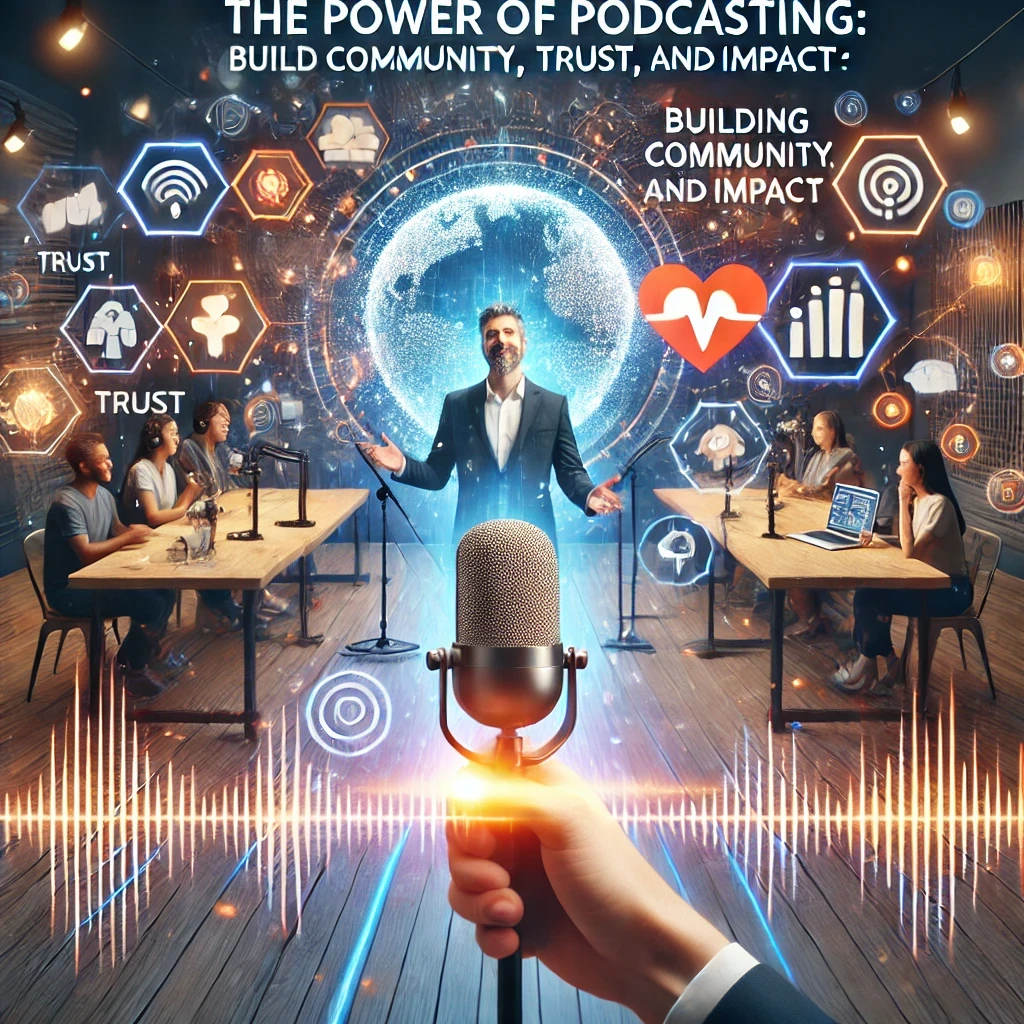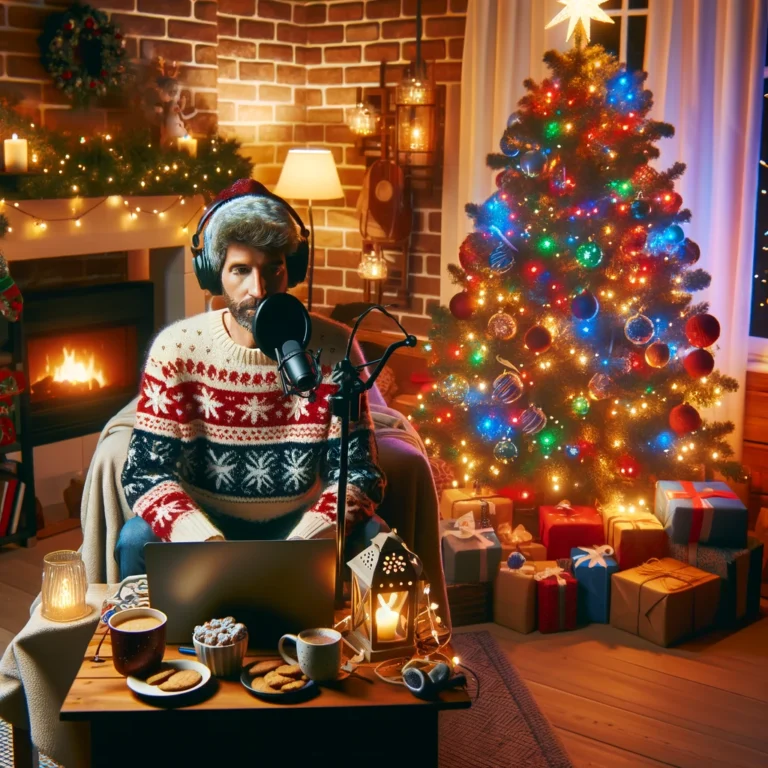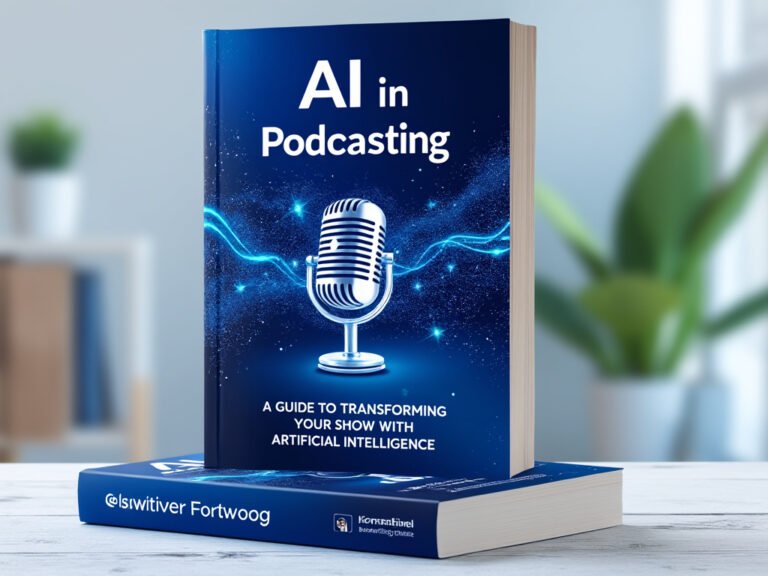There are countless ways to share your message in today's digital world. Creators have many tools—social media, blogs, videos, and newsletters—but one medium has truly stood out: podcasting. Whether you're just starting out or already experienced, let’s explore why podcasting has captured the hearts (and ears) of millions worldwide.

Why Podcasting?
Podcasting has grown into a multi-billion-dollar industry, with more listeners tuning in than ever before. But what makes podcasting so powerful? Here are a few core reasons:
- Accessibility: Anyone with a smartphone can listen.
- Intimacy: There’s something personal about hearing someone’s voice.
- On-Demand: Listen anytime, anywhere.
- Flexibility: Podcasts can fit any format, from short, bite-sized episodes to long-form discussions.
What Is a Podcast?
A podcast is an audio file distributed digitally and accessible online, often as part of a series to which listeners can subscribe. Each episode revolves around a specific topic, story, or theme. Formats can range from interviews and solo discussions to storytelling and panel-style discussions.
To give you a better idea, here’s a quick breakdown of podcast formats:
| Format | Description | Examples |
|---|---|---|
| Interview | Host interviews guests, often experts in a specific field | The Joe Rogan Experience, How I Built This |
| Storytelling | Host tells a story, often with a narrative arc | Serial, Lore |
| Solo | Single host sharing insights, tips, or reflections | The Tim Ferriss Show, The Mindset Mentor |
| Panel | Multiple hosts/guests discussing a topic in depth | The Breakfast Club, The Daily |
The Six Key Powers of Podcasting
Let’s examine why podcasting is a powerful tool for creators, entrepreneurs, and brands alike.
1. Accessibility and Ease of Use
One of the most appealing aspects of podcasting is how accessible it is for both creators and listeners.
- Low Startup Costs: You only need a decent microphone and free or low-cost editing software. You can even start with your smartphone on a tight budget.
- On-Demand Listening: Podcasts are available on-demand, so listeners can tune in when convenient.
- Multitasking-Friendly: Unlike video or written content, podcasts don’t require your full attention—you can listen while driving, cooking, or exercising.
Tools Needed to Start a Podcast
To make things easier, here’s a table outlining the essential tools you’ll need:
| Tool | Description | Example Options |
|---|---|---|
| Microphone | Captures audio | Blue Yeti, Audio-Technica ATR2100x |
| Editing Software | Edits and refines your audio | Audacity, GarageBand, Adobe Audition |
| Hosting Platform | Distributes your podcast | Libsyn, Buzzsprout, Anchor |
| Promotion Tools | Share your podcast with others | Social media, website, email newsletter |
2. Building Community
Podcasting is more than just a one-way conversation—it's about community creation.
- Creating Connection: When listeners tune in week after week, they start to feel like they know you. They are committed to your story and your voice.
- Listener Feedback: Most podcast platforms allow listeners to leave comments or reviews. Use this feedback to improve your content and engage with your audience.
- Exclusive Content: Many podcasters offer bonus episodes, live Q&As, or other special perks for loyal listeners, further enhancing that sense of community.
Tips for Building a Community Around Your Podcast
- Encourage listeners to leave reviews or send in questions.
- Create a private Facebook group or Discord server for your listeners.
- Host live episodes where your audience can interact in real-time.
- Invite guests who resonate with your audience's interests.
3. Authenticity and Trust
Podcasts allow you to express honesty and authenticity, which can be compelling to your audience.
- The Power of Voice: Your tone, inflection, and personality are conveyed through your voice, helping to establish authenticity and trust.
- Raw and Unfiltered: Podcasts often lack the production polish of other media. Listeners appreciate getting the real you, quirks and all.
- Storytelling: Podcasting provides a platform to tell stories in a personal way. Whether you’re sharing your journey, interviewing guests, or covering a niche topic, listeners can feel your passion.
4. Reaching a Wide Audience
Podcasting has a global reach, with millions of listeners worldwide.
- Platform Reach: Your podcast is accessible worldwide on platforms like Apple, Spotify, and Google.
- Niche Appeal: Podcasting allows you to cater to a specific niche, connecting deeply with your target audience.
- Cross-Promotion: Collaborating with other podcasters or guesting on their shows can introduce your podcast to new listeners.
Popular Podcast Distribution Platforms
| Platform | Description | Target Audience |
|---|---|---|
| Apple Podcasts | One of the most popular podcast platforms | Broad audience, iOS users |
| Spotify | Growing platform with a younger, music-focused audience | Broad audience, younger demographics |
| Google Podcasts | Integrated with Android devices | Android users, broad audience |
| Stitcher | Podcast app with personalized recommendations | Niche podcast fans |
5. Freedom to Dive Deep
In podcasting, you have the creative freedom to explore topics as in-depth as you want. Unlike a blog post, which might be limited by word count, or a video that requires heavy editing, podcast episodes can vary widely in length and format.
- Long-Form Content: Many podcasts delve deep into topics, with episodes lasting anywhere from 30 minutes to two hours or more.
- Creative Formats: You can experiment with different styles, such as roundtable discussions, Q&A sessions, or narrative storytelling.
- Special Series: Some podcasts produce mini-series focused on a single topic, offering in-depth exploration that spans multiple episodes.
Examples of Podcast Formats for Deep-Diving
- Mini-Series: A set number of episodes focusing on a specific topic.
- Case Studies: Each episode thoroughly examines a real-life example.
- Solo Series: Episodes where the host shares personal insights and research.
6. Booming Industry with Promising Growth Prospects
The podcasting industry is rapidly growing, attracting new listeners and creators daily. This expansion offers numerous opportunities for anyone interested in starting their podcast.
- Increasing Listener Base: With the rise of smart speakers and integrated streaming, more and more people are discovering and listening to podcasts.
- Monetization Opportunities: From sponsorships to listener support on platforms like Patreon, podcasting offers numerous ways to earn money.
- Professional Networking: Podcasting can connect you with other creators, brands, and industry experts, opening up new career opportunities.
How to Get Started in Podcasting
Feeling inspired to start your podcast? Here’s a simple roadmap to help you get started.
1. Define Your Niche and Target Audience
Choose a topic you're passionate about that resonates with a specific audience. The more niche, the better—this will help you stand out and attract dedicated listeners.
2. Choose Your Format
Decide whether you want to do solo episodes, interviews, or a panel-style show. If you need inspiration, refer back to our table of formats!
3. Get Your Gear and Software
You don’t need a professional studio to get started—just a good microphone, editing software, and a quiet space.
4. Record and Edit
Start recording! Your first episode might not be perfect, and that’s okay. Practice makes progress. Use editing software to remove mistakes, add intro and outro music, and improve sound quality.
5. Distribute and Promote
Upload your episodes to a hosting platform and promote them across social media, your website, and wherever your audience hangs out online.
The Bottom Line
Podcasting is more than a trend—it's a powerful, flexible, and personal way to share your voice with the world. Whether building a brand, sharing your story, or connecting with a community, podcasting allows you to do it all on your terms.
So, are you ready to take the plunge? Remember, the world is listening—all you have to do is start.




